CORRUPTION
'Money makes the mare to go in Korea where the money rules'
'He who has money is innocent;
he who has no money is guilty!'
By Lee Kyung-sik
Publisher, The Korea Post
Koreans have a popular saying, ‘Yujeon Mujoe, Mujeon Yujoe.’ It means, “He who has money is innocent; he who has no money is guilty.”
This common sentiment prevails among the Korean people, especially among the common people who do not have much money. Economic indices show that 99% of the entire population of Korea is classified ‘have-nots’ while only one percent enjoys the lions’ share of the social wealth.
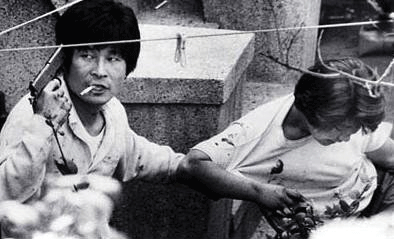
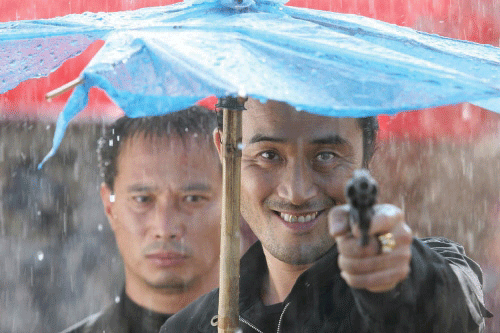
The underlying message of the expression, Yujeon Mujoe and Mujeon Yujoe, is to criticize the society where one can live in dignity only when one either has money or a good connection with the powerful persons in the government or other organizations that have power, including the so-called ‘fourth estate’ (the mass communications media).
If you have money you can buy your way out of the prison or even before you are convicted by the court by bribing the competent legal investigative authorities.
In many instances the expression refers to the business tycoons in Korea called ‘jaebeol’ or plutocrats who have trillions of won in their private possession.
Many Korean jaebeol business chairmen have so much money that in the eyes of the common people ‘they don’t know what do with them.’
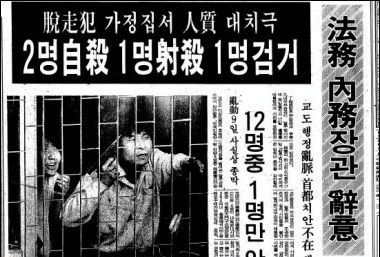
The jaebeol businesses recruit the top prosecutors and judges following their old-age retirement as leaders and members of their Legal Affairs Team. After recruitment, their job is mainly to keep the jaebeol chairmen and key executives out of legal problems when they bend or break the laws. Some of the retirees also go to big law firms whose clients are more often than not people who have a lot of money.
The Korean society has another convention named ‘Jeongwan Yeu’ meaning ‘continued respect of the retired former superiors by the former subordinates.’
The big businesses and big law firms hiring the high-ranking retirees from the influential government organizations and law enforcement agencies as well as the prosecution and court authorities continue to enjoy a good measure of influence on the incumbent prosecutors, judges and senior government officials under the influence of ‘Jeongwan Yeu.’ Big businesses hiring such high-ranking retired judges and prosecutors never fail to win lawsuits against the other party who have less money or connection with high government officials.
Hence the satirical common expression, “The government is terminal; the jaebeol are forever!” They have another common saying, ‘Daema Bulsa,’ meaning “Big horses never die!"or "Big businesses die hard!" They all mean that the big businesses ‘never die’ but live forever--thanks to the exorbitant amounts of money they have in their private possession as well as in their business organizations.
In the face of mounting pressure on the jaebeol with the passage of time, however, the erring jaebeol tycoons continue to develop new ways of avoiding the legal punishment.
One of the methods is to seek the sympathy of the people as well as the law-enforcing officers such as police, prosecutors and judges.
The erring jaebeol suspects are hale and hearty at normal times but when the law-enforcement agencies begin investigation, they learn the news well in advance, feign illness and go into hospitals. Most of the big hospitals have VVIP rooms where the room charge is known to be as high as several million won per night.
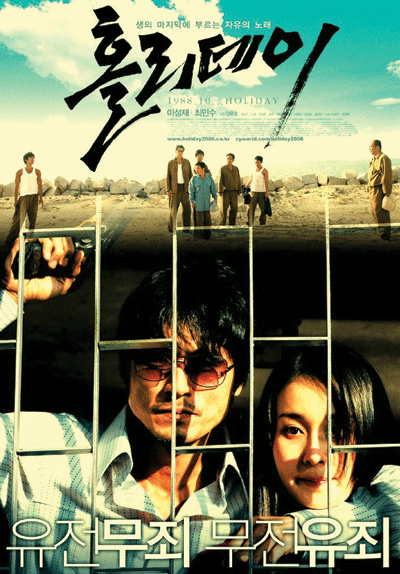
One jaebeol tycoon is known to have amassed and have in his private possession nine trillion won (more than US$8 billion). Many jaebeol chairmen are Septua-Octogenarians who have 10 more years to go or 20 at the longest. Suppose an Octogenarian jaebeol lives till 90, he or she would have only 10 more years to live. And how much should he/she spend per day to use up the nine trillion won in 10 years? He/she has to use a whopping 247 million won a day to use up all his/her money. Several million won for him/her at the VVIP room at the top-luxury hospital per night will be nothing--as it will be less than one 50th of his/her daily allowance.
At the hospital, the erring jaebeol undergo ‘medical attention’ and when they are summoned by prosecutors for interrogations, they all ride a wheelchair wearing a big hospital mask to hide their face and also to look to the people as if they were seriously ill. Needless to say, they keep their mustache and whiskers grow to appear to be a real patient so weak as to give up shaving.
The MBC TV where the government is known to have 70% of the share can hardly resist the incumbent government but its drama is seen to be very much different from its news reporting. It appears that the MBC TV dramas have little fear of those in power.
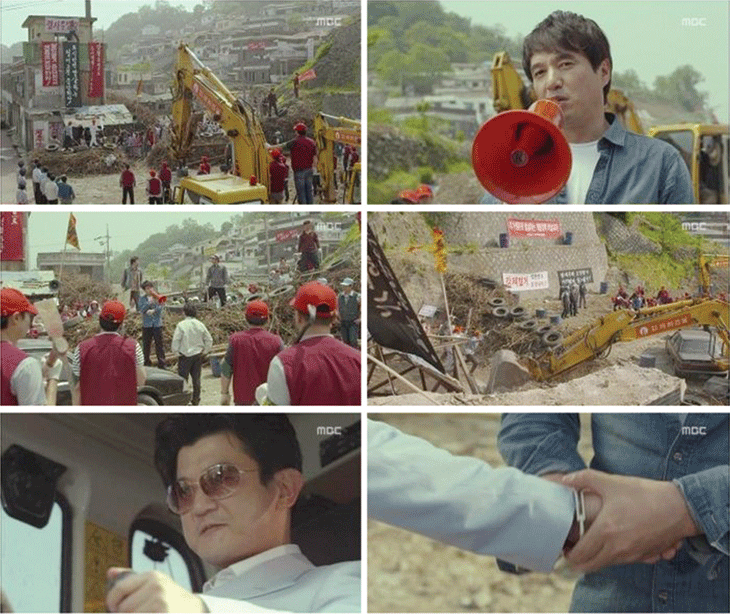
One recent example is the popular drama named candal: the Shocking, Immoral Case.'
Chang Tae-ha (starred by Park Sang-min) is a big construction tycoon and Detective Ha Myeong-geun is a conscientious detective who is a poor man who tries to live within his own means in order to stay out of corruption.
One day Detective Ha comes to an apartment reconstruction site to prevent a physical conflict between the residents who are opposed to the reconstruction as they lose money and the construction company that takes the law into its own hands by virtue of enormous money the company has that it obviously uses to bribe the police.
Chairman Chang crushes the police station car of Detective Ha with a large excavator and removes th barricade fence built by the residents.
Chang does it in complete disregard of the police effort to find a peaceful solution between the residents and the construction company.
Detective Ha carries out his duty handcuffing Chairman Chang and bringing him to the station for questioning.
At the police station, Detective Ha's superior comes to Ha and orders him to remove the handcuffs and set him free because it was an order from his superiors.
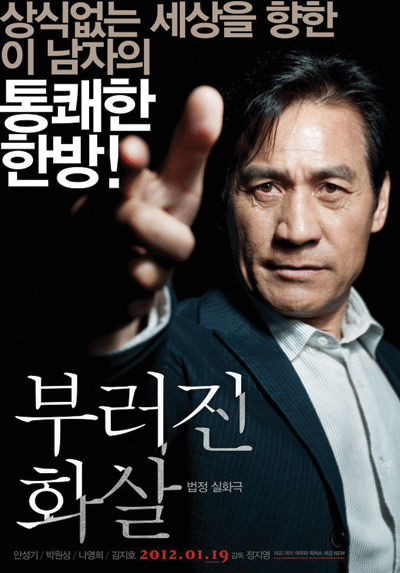
Thus the MBC TV scenes show how the money works on the police and how the corrupt parties win at the expense of honest and conscientious policemen who have no money. A typical case of Yujeon Mujoe and Mujeon Yujoe.
On a similar note, a desk editor at the Munhwa Ilbo Korean-language daily newspaper wrote a very interesting story on the topic of ‘Yujeon Mujoe, Mujeon Yujoe’ which was published by the daily on July 5, 2013. The story in excerpts was to the following effect:
Thorough Investigations into ranking government officials and business tycoons on charges of involvement in abuse of power, bribery and various other forms of crime and irregularities began during the Administration of the opposition-oriented former President Kim Young-sam of the Republic of Korea (1993-1998).
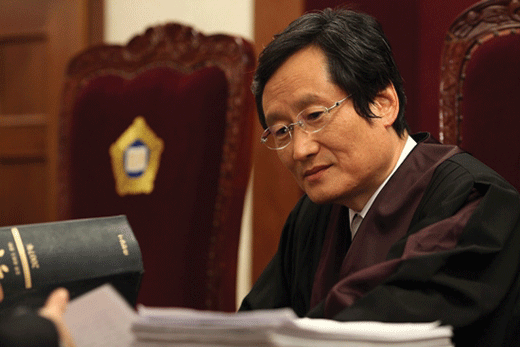
The law-enforcement officers such as prosecutors were so much overworked during those days that they coined an expression of humor: “We do so much Sajeong (investigative work) during the day that we cannot make Sajeong (sexual ejaculation) at night.” (Sajeong is a Korean homonym for ‘investigative work’ and ‘sexual ejaculation’ at the same time.)
President Kim YS’ crackdown on corrupt officials and erring business tycoons was so strong that it was considered a primary contributor to his skyrocketing popularity rating among the Korean people, which at one time reached higher than 90% at public opinion polls. At the time, once a person became suspected of involvement in something wrong, there was no way to escape a thorough investigation regardless of difference in his/her rank in government or position society.
Another interesting expression was born during this period in regard to the erring officials and dishonest business tycoons. It was: “Il Do, I Bu, Sam Baek, Sa Un.” ‘Il Do’ is a short for ‘Ildan Domangga’ (First, try to run away), ‘I Bu’ means “Second, if you get caught, deny everything and don’t admit anything,” and Sam Baek means “Third, if your denial doesn’t work, then use your ‘backers’ (pull strings) to help you.” ‘Sa Un’ means, “Fourth, if all such measures do not work, then leave everything to chance.”
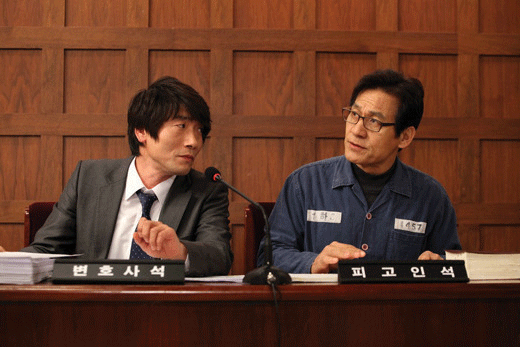
Why do they advise the erring senior officials and jaebeol chairmen to scram instead of bribing or seeking to find influence peddlers?
The ‘thorough investigation’ does not last very long--let alone forever. After a flurry of questioning and interrogations, there has to be a period of lull and this is where and when the role of ‘Yujeon Mujoe (Have money? Not guilty) and Mujeon Yujoe’(No money? You are guilty) comes in.
Even if the erring senior officials and big business tycoons are arrested on charges of irregularities, they get a parole or probation through the use of ‘super heavy-weight lawyers’ and medical doctors.
If they are prosecuted and stand before the judge at trial, the big business owners get a probation named ‘stay of execution of sentence.’
They get the lenient decision of the court by making all kinds of threats complaining that the prosecutors and judges are hurting the national economy by overly interfering with the big businesses obstructing them from winning large business orders from overseas.
However, with the passage of time, the democratic system has taken root in the Korean society and the people have raised the level of their voice and demand for noblesse oblige from the jaebeol and the so-called ‘society leaders.’.
The standard of punishment against corruption and irregularities has been increased and there has been a marked decrease in the frequency of the courts’ giving probation to erring jaebeol chairmen and corrupt senior officials of the government and other public organizations.
In the face of this situation, the law-breaking business tycoons and ranking government officials have changed their strategy and tactics to cope with the changing situation. The erring business tycoons and corrupt officials started appearing in the court riding a wheel chair and/or wearing large masks to show that they were not well and were unable to walk.
As soon as the trials begin against the jaebeol chairmen they donate hundreds of billions of won for charity to make themselves look like generous donors to win the sympathy of the courts as well as the general public.
The people, who had expected voluntary moral deeds from the erring leaders of the society, began actively demanding justice against corrupt and unfair practices perpetrated by the so-called leaders of the Korean society. Against this backdrop, the choice of methods available for use by the corrupt leadership of society, has dwindled. The government officials who were found involved in corruption and other irregular practices were meted out due punishment. The owners of big businesses undergoing investigations on charges of involvement in dereliction of duty and embezzlement have learned that ‘donations’ were no longer sufficient to keep themselves out of jail. Therefore, they found a new tactic--giving up their business management rights in expectation of leniency from the court, namely reduction of punishment.
In this situation, practices of Yujeon Mujoe (‘Have money? Not guilty’) in the course of investigations and trials, have decreased. However, such practices have increased in the course of execution of sentences.
For instance, a big business jaebeol’s wife, who was sentenced to life imprisonment for involvement in a contract murder of a university co-ed, was found to have had a luxurious living in a plush VVIP room of a big university general hospital instead of staying in a prison cell.
The private school foundations and some other organizations in Korean society still have a way of avoiding the investigations and punishment by the law enforcement agencies.
On July 2 this year, the president of a private school foundation appeared at the court for questioning to determine the issuance of an arrest warrant against him on the charge of involvement in a case of irregularities in school matriculation tests and embezzlement. The president appeared before the judge carried on stretchers getting an IV to feign illness so that he could win the sympathy of the judge.
However, when the judge approved the issuance of the arrest warrant against the man, the president jumped out of the stretchers, stood up on his own feet and walked out of the court room--like a healthy normal man. He was a fake patient. The private school foundation president was found to be a person who would do anything for his own personal gains and completely ignore the eyes of the general public.
The problem here, however, is ‘Could it be a completely isolated case?’ Most of the ordinary people say no.
On account of the built-in limits in the capitalist free market economy system, economic justice is not done and economic democratization is far from being properly insured. This is why the people continue to raise their voice to attain the two goals.
The phenomenon of Yujeon Mujoe (‘Have money? Not guilty’) and Mujeon Yujoe (‘No money? You’re guilty’) will not only determine the fate of the Park Geun-hye Government but also the fate of the political system in Korea. k

